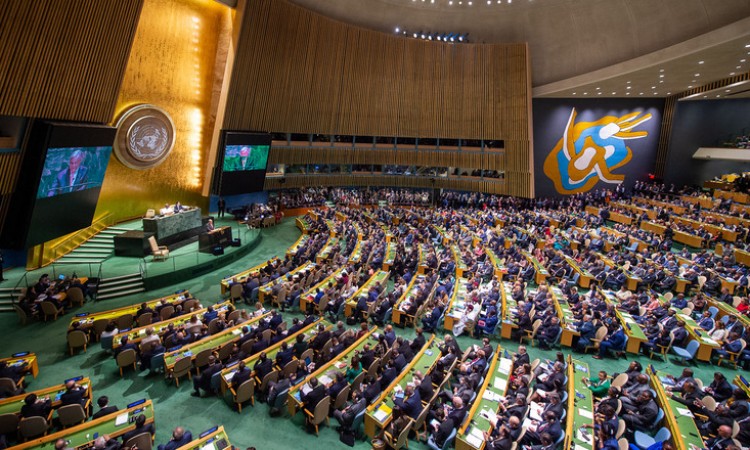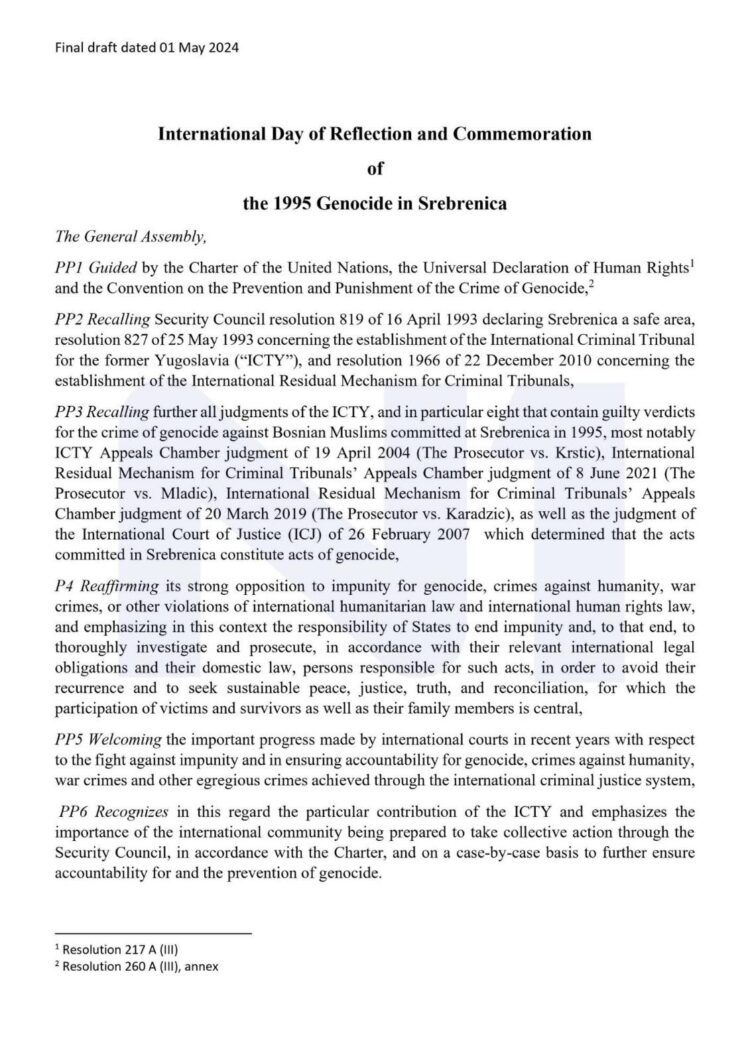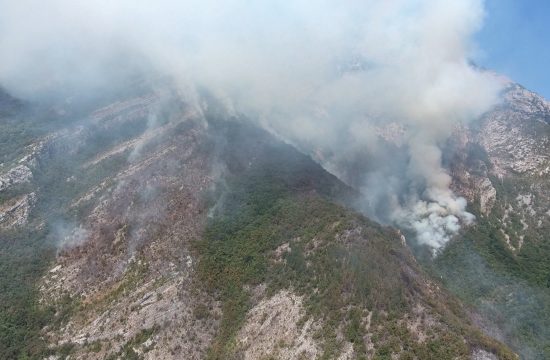
The final Draft of the UN Resolution on the genocide in Srebrenica was agreed upon and submitted to the President of the United Nations General Assembly. Pročitaj više
“After several rounds of inclusive consultations, the final proposal of the Resolution ‘International Day of Reflection and Commemoration of the Genocide in Srebrenica 1995’, by the cross-regional core group, went to the President of the UN General Assembly and all permanent missions in the UN,” BiH Ambassador to the UN Zlatko Lagumdzija announced on X.
Below is the full text of the Draft UN Resolution on Srebrenica:
“Guided by the Charter of the United Nations, the Universal Declaration of Human Rights and the Convention on the Prevention and Punishment of the Crime of Genocide,
Recalling Security Council resolution 819 of 16 April 1993 declaring Srebrenica a safe area, resolution 827 of 25 May 1993 concerning the establishment of the International Criminal Tribunal for the former Yugoslavia (“ICTY”), and resolution 1966 of 22 December 2010 concerning the establishment of the International Residual Mechanism for Criminal Tribunals,
Recalling further all judgments of the ICTY, and in particular eight that contain guilty verdicts for the crime of genocide against Bosnian Muslims committed at Srebrenica in 1995, most notably ICTY Appeals Chamber judgment of 19 April 2004 (The Prosecutor vs. Krstic), International Residual Mechanism for Criminal Tribunals’ Appeals Chamber judgment of 8 June 2021 (The Prosecutor vs. Mladic), International Residual Mechanism for Criminal Tribunals’ Appeals Chamber judgment of 20 March 2019 (The Prosecutor vs. Karadzic), as well as the judgment of the International Court of Justice (ICJ) of 26 February 2007 which determined that the acts committed in Srebrenica constitute acts of genocide,
Reaffirming its strong opposition to impunity for genocide, crimes against humanity, war crimes, or other violations of international humanitarian law and international human rights law, and emphasizing in this context the responsibility of States to end impunity and, to that end, to thoroughly investigate and prosecute, in accordance with their relevant international legal obligations and their domestic law, persons responsible for such acts, in order to avoid their recurrence and to seek sustainable peace, justice, truth, and reconciliation, for which the participation of victims and survivors as well as their family members is central,
Welcoming the important progress made by international courts in recent years with respect to the fight against impunity and in ensuring accountability for genocide, crimes against humanity, war crimes and other egregious crimes achieved through the international criminal justice system,
Recognizes in this regard the particular contribution of the ICTY and emphasizes the importance of the international community being prepared to take collective action through the Security Council, in accordance with the Charter, and on a case-by-case basis to further ensure accountability for and the prevention of genocide.
Taking note of the role of the Secretary-General's Special Advisers on the Prevention of Genocide and the Responsibility to Protect; and noting the importance of regular briefings on human rights and international humanitarian law violations as well as on hate speech and incitement in raising early awareness of potential genocide.
Also noting that the prosecution of persons responsible for genocide and other international crimes in national justice systems, including the Court of Bosnia and Herzegovina, and the ICTY as well as the International Residual Mechanism for Criminal Tribunals, remains central to the process of national reconciliation and trust-building and to the restoration and maintenance of peace in Bosnia and Herzegovina, and further recognizing that strong regional cooperation between national prosecutors’ offices is essential in fostering peace, justice, truth and reconciliation among countries in the region,
Noting that 2025 will mark the thirtieth anniversary of the genocide in Srebrenica, in which at least 8,372 lives were lost, thousands were displaced, and families and communities were devastated,
1. Decides to designate 11 July as the International Day of Reflection and Commemoration of the 1995 Genocide in Srebrenica to be observed annually;
2. Condemns without reservation any denial of the Srebrenica Genocide as a historical event, and urges Member States to preserve the established facts, including through their educational systems by developing appropriate programs, also in remembrance, towards preventing denial and distortion, and occurrence of genocides in the future;
3. Also condemns without reservation actions that glorify those convicted of war crimes, crimes against humanity and genocide by international courts, including those responsible for the Srebrenica Genocide;
4. Emphasizes the importance of completing the process of finding and identifying the remaining victims of the Srebrenica Genocide and according them dignified burial and calls for the continued prosecution of those perpetrators of the Srebrenica Genocide that have yet to face justice;
5. Urges all States to fully adhere to their obligations under the Convention on the Prevention and Punishment of the Crime of Genocide, as applicable, and customary international law on genocide prevention and punishment with due regard to relevant ICJ decisions,
6. Requests the Secretary-General to establish an outreach programme entitled “The Srebrenica Genocide and the United Nations”, starting its activities with preparations for the 30th anniversary in 2025, and further requests the Secretary-General to bring the present resolution to the attention of all Member States, organizations of the United Nations system and civil society organizations for appropriate observance,
7. Invites all Member States, organizations of the United Nations system, other international and regional organizations, and civil society, including non-governmental organizations, academic institutions, and other relevant stakeholders to observe the International Day, including special observances and activities in memory and honor of the victims of the 1995 Genocide in Srebrenica, as well as appropriate education and public awareness- raising activities.”







Kakvo je tvoje mišljenje o ovome?
Budi prvi koji će ostaviti komentar!